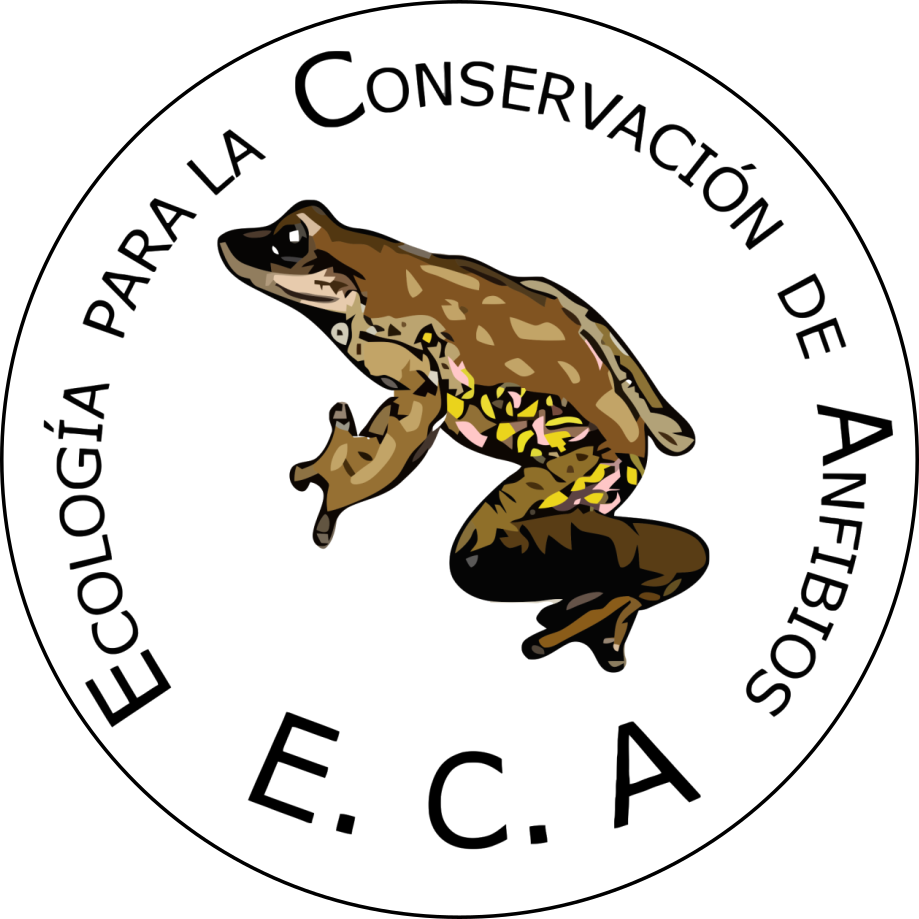
Edna González has dedicated the last years studying the native amphibians or frogs of Oaxaca. Many are at risk of disappearing
CITLALLI LÓPEZ VELÁZQUEZ / OAXACA CORRESPONDENT.- When Edna was a child, she had her own spaceship to travel off from earth. She was lost in that recurring dream that provided her with imagination. Other times, when night came, she wrapped herself in the fantastic anecdotes of her mother''s field trips. She frequently visited the Natural History Museum with her father.
Having a free imagination and family encouragement allowed her to enhance her curiosity to become an important scientist.
Edna Leticia González Bernal is a researcher in the Chair program of the National Council of Science and Technology (Conacyt), attached to the Interdisciplinary Research Center for Integral Regional Development (CIIDIR), Oaxaca Unit of the National Polytechnic Institute (IPN). She currently works studying amphibians to reduce the danger of extinction in which this group of vertebrates is found and its consequent impact on the environment.

Michio Kaku, an American theoretical physicist, says that children are born scientists until society, and formal primary education crushes their curiosity. González Bernal considers that one of the main actions to encourage girls and boys the taste for science is not to hold back your questions. "I have always believed that there is no bad question, there is no silly question, neither from children nor from adults, nor from anyone. The more we encourage them the ability to ask themselves questions and help to solve them, it can bring them closer to a scientific field more easily. "
Passionate about research, the Doctor of Science has dedicated the last few years to studying the native amphibians or frogs of Oaxaca, as little is known. Many of them are in categories of risk of extinction.
The research is focused on understanding the factors that affect them and how they affect them. They have investigated different degrees of disturbance in mountain mesophilic forest, which is an ecosystem with significant extension in Oaxaca protected by indigenous communities for the most part, but with risk in all Mexico of extinction.
The research findings range from how they move, the places they choose to move and shelter, and larval stages or tadpoles that were not known. She said something that is not found in many species of frogs in Mexico is their complete biology and life cycle.

They are also investigating the impact that trout culture - widely promoted by government programs - can have on native amphibian larvae. "We have found super interesting results on the ways in which tadpoles have to respond to the introduction of this species."
These investigations are of the utmost importance since amphibians are the fastest-growing group extinguishing in most cases, due to human causes.
Why amphibians as an object of study? The question has been asked repeatedly, leading González Bernal to a constant reflection that she first refers while studying in Chile. One teacher spoke to her for the first time of the global amphibian crisis. However, the interest goes further because before knowing this, throughout her life, she saw these living beings with fascination.

WOMEN AND GIRLS IN SCIENCE
Although González Bernal did not face obstacles and her family did not object to her desire to be a scientist, she was questioned subtly from a sexist perspective in her social environment. Are you going to wear boots soon?; That''s not feminine !; How are you going to get into the field? How are you going to go alone with a man !? that''s dangerous!

Those phrases must be discarded, those beliefs that do not do us any good, they are stereotypes that all women live, but that is not healthy. We must make an effort as a society to abandon them and not to repeat them. "
Reflecting on the obstacles women face in science, she indicates that they are often imperceptible, being immersed in a macho society. Only through deep reflection do they become evident and discover the inequalities that require them to make more effort than men. "It takes more effort, more work to make them listen to you, respect you, take your ideas into account. Our point of view takes longer to permeate in the brainstorming than what a man says."
WHAT DOES IT TAKE TO BE A SCIENTIST?
"It is like any profession, if you like it and enjoy it, you will be happy; for me science implies, having desire and passion, if it is something that, as a girl, boy, woman or man, whatever you are, you want to do, you are going to find an exciting field. As in all professions, it implies effort and sacrifice; always perseverance and more perseverance ".
Curiosity - she adds - is fundamental, so it is vital to promote it in childhood and not kill their constant questions.

Thus, The Day of Women and Girls in Science was celebrated on February 11, González Bernal called on girls to believe in their dreams and set goals to fight for them.
International Day of Women and Girls in Science, which has been celebrated since 2012, is when full and equal access and women''s participation are demanded. Due to different gender stereotypes, in the world, in this sector, women represent less than 30 percent.
If you want more information about the research "Ecology for amphibian conservation," you can consult ecaoaxaca.com and ecaoaxaca.org.
Traducción: Valentina K. Yanes
